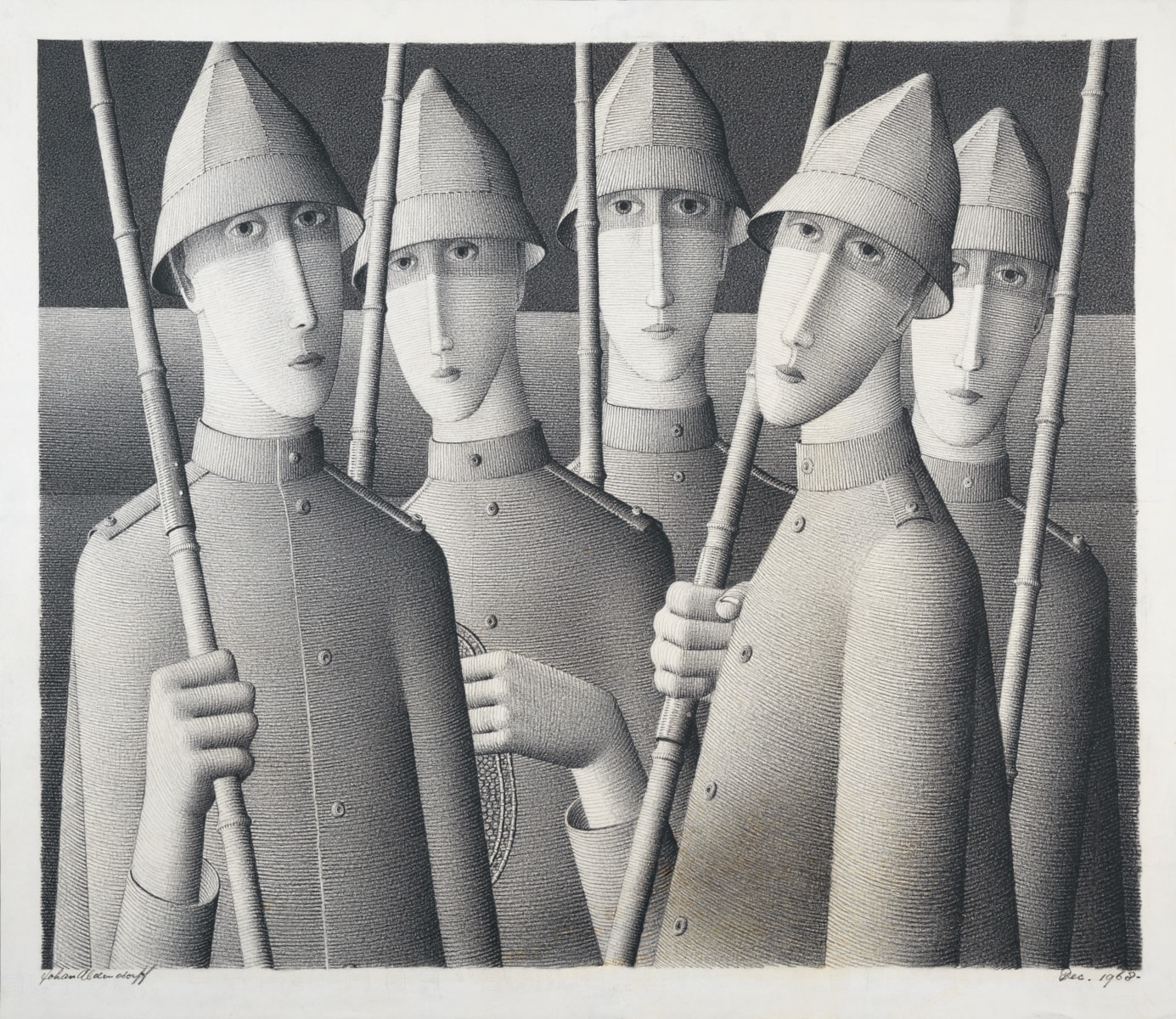
Johan Aldendorff (Amsterdam 1924 - Cagnes-sur-Mer 2010)
Soldiers
Description:
signed lower left: Johan Aldendorff; inscribed lower right: Dec 1968.
conte crayon
500 x 598 mm
Provenance:
Private collection, Tokyo
Note:
Born in Amsterdam in 1924, Johan Aldendorff worked as a cartoonist for the magazine Het Parool before relocating to the town of Cagnes-sur-Mer after the war. In the French Riviera Aldendorff worked as a writer, musician, and artist, and throughout his career in France, he produced painstakingly meticulous drawings, such as the present example, at the rate of around one drawing per month. Aldendorff’s idiosyncratic and labour-intensive technique restricted his output such that he only produced around 200 prized and stylistically consistent works over a 30-year period. These monochrome drawings are replete with musical motifs, ethereal allusions, and mystical creatures, and are drawn in conte crayon with elegant, evenly balanced lines. Owing to the softness of the medium and the crystalline whiteness of Aldendorff’s favoured paper type, each drawing is a testament to the artist’s patience and technical mastery since it had to be completed without error as the use of an eraser would cause the conte crayon to bleed into the perfect white of the background.
Aldendorff found a captive audience in Japan and the largest collection of his drawings is held at the Osaka University of Arts. This group of 37 drawings was assembled by two professors who were captivated by the precision and laboriousness of his work: Professor Takeji Iwamiya, Head of the Department of Photography; and Professor Takeshi Otaka, Head of the Department of Design and Art. The university’s unique collection allowed for retrospectives to be held in 2021, 2003, and 1998. The title this last exhibition, The Paintings of Johan Aldendorff, the Genius of the Century the meticulous painter of hand-drawn paintings by Johan Aldendorff. ‘The World of Love’, is indicative of the esteem in which Aldendorff was held in the country.
